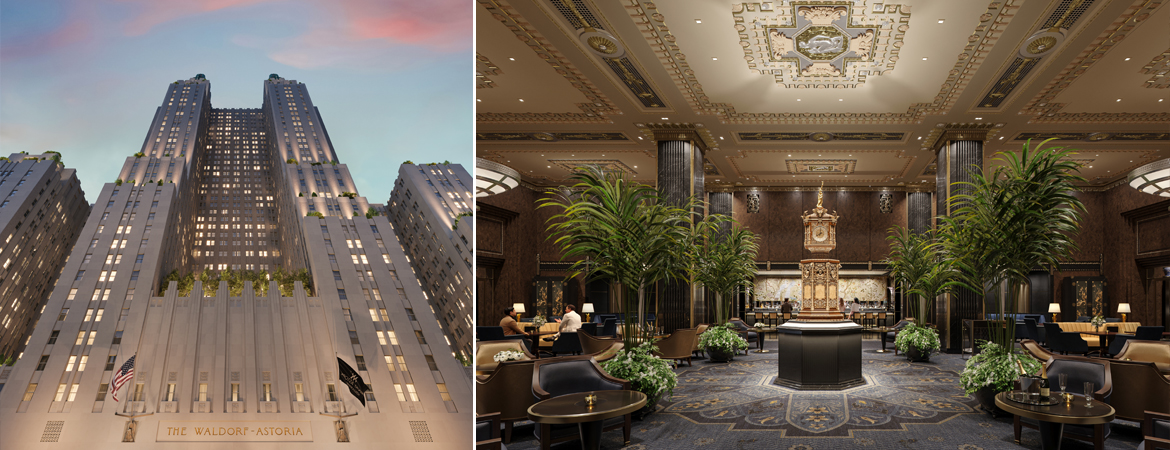By Saul Lavine

This blog will explore the world of hotel renovations, shedding light on the technical intricacies that impact the ability to improve New York’s hospitality market. Drawing upon over two decades of experience in the New York construction market, I will be providing insights into the technical challenges as well as the critical operational and regulatory challenges that hotel owners and investors are facing in the post-pandemic recovery of one of New York City’s most vital industries.
This exploration will address market shifts as well as sustainability and energy requirements, general code compliance, and union labor considerations. All these factors, and more, will need to be addressed to meet short and long-term project needs in New York’s dynamic hospitality market.
Three Key Industry and Regulatory Shifts Driving Local Hotel Reinvestment
Before delving into the more technical aspects of hotel upgrades, let’s discuss the regulatory and market shifts driving the demand for renovations in New York City hotels:
- Local Law 97 and the Journey Towards Carbon Neutrality. Local Law 97 is reshaping NYC’s sustainability landscape. The Law introduces carbon caps, with stricter compliance periods being phased in from 2024 through 2050. Property owners must proactively adopt eco-friendly measures to reduce their carbon footprint and comply with these evolving regulations.
- The Citywide Hotels Text Amendment Means No New Hotels Without Special Permits. The Citywide Hotels Text Amendment, enacted on December 9, 2021, mandates special permits for new hotel developments in specific districts. Since its implementation, NYC has halted new hotel approvals, pushing owners and investors to pursue other hotel re-investment strategies.
- Brand Renovation Cycles and the Impact of COVID-19. In hospitality, brand-mandated renovations every 5 (soft) and 10 (hard) years are essential for competitiveness. With COVID-19 came prolonged hotel closures, which deferred maintenance issues. As New York’s hotel industry continues to recover from the pandemic and as local tourism continues to rebound, timely renovations are crucial to meet evolving standards, travel demand, and guest expectations.
Understanding these industry and regulatory shifts is crucial for property owners and investors as they prioritize hotel upgrade work in New York City.
Local Law 97
Let’s begin with a closer look at New York City’s commitment to sustainability. Passed by the City Council in April 2019, Local Law 97 ushers in an era of energy efficiency requirements hotels must meet to avoid financial penalties. Upgrading insulation in perimeter walls and roofs, installing energy-efficient windows, implementing energy-efficient lighting systems, and integrating advanced mechanical systems form the bedrock of this mandate and significantly affect renovation budgets.
While the costs of upgrades can be daunting, a well prioritized upgrade strategy can mitigate expenses and ensure adherence to regulations. For example, guestroom lighting and mechanical system upgrades could be delayed until hard guestroom renovations were performed. Also, roofing insulation could be upgraded during a future roof replacement. Window replacement and perimeter insulation upgrades can also help improve a building’s efficiency but are incredibly costly with modest paybacks.
Local exemptions, related to things like the property’s status as a historic building, may help avoid certain local laws, such as Local Law 97. Exploring these exemptions can provide another viable pathway to compliance while reducing financial and regulatory burdens.
Code Compliance & Safety
Building codes serve as the backbone of safety and functionality in the hospitality industry. Renovating hotels requires meticulous attention to code compliance, covering aspects ranging from fire alarm system upgrades to adherence to ADA regulations.
During a recent Cumming Group project, a building’s Fire Command Center — the room designated as the Fire Department response point and center for emergency operations — was antiquated and at capacity. Our team performed a technical upgrade of the system to allow for future fire alarm upgrades at a later date.
Union Labor
Union labor, a defining aspect of the New York construction industry, plays a dual role in hotel renovations. New York hospitality operations typically utilize union labor. In addition, some hotels require unionized construction labor for their renovations, though some have received waivers. During projects utilizing union labor, understanding the requirements and their impact on timelines and costs is critical to achieving a harmonious renovation that meets quality and schedule demands.
A skilled project manager helps to balance union labor schedules and minimize disruptions to hotel operations. In addition, the business agents of hotel operations unions play a significant role in ensuring that the unionized staff operates in safe, clean, and secure spaces and that all stakeholders adhere to union requirements.
Regulatory changes and labor requirements can seem daunting. Having a strong team of advisors and consultants in place can help overcome the complexities of the ever-evolving hospitality construction process in NYC.